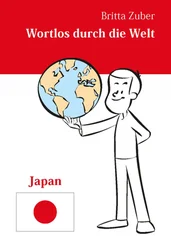After that followed detailed questionnaires about his mental health and that of his family. These documents listed a host of mental illnesses, from depression to schizophrenia, including phobias he’d never heard of, and he didn’t tick any of them. Finally, he started on a series of psychological examinations. The first test mapped the five main components of personality: extraversion, openness to experience, conscientiousness, agreeableness, and neuroticism. Since he had been through a similar psychological evaluation in the military, he assumed there would also be interviews with psychologists, probably for those who passed the current round of tests. He answered the personality questionnaire as truthfully, but also as favorably, as he could.
The second questionnaire reminded him of certain personality tests he had taken online for fun, but it contained more questions, many of them repeated or rephrased, and seemed to go into much more detail than the simple tests found on the internet. He assumed the space organization wanted to know as much as possible about the candidates’ personality types and psychological profiles. His responses to those kinds of personality tests hadn’t changed much since he first started taking them for fun online, and now he gave the same answers as he always did.
The last portion he also recognized from personality tests online, but again it was a more advanced and detailed version. This test mapped possible personality disorders or other psychological issues. As with the mental health questionnaire, it contained a long list of phobias, this time accompanied by a short explanation. Was he afraid of heights, confined spaces, the sight of blood, going to the dentist, going to the doctor, spiders, insects, hair, water, or fire? Did he feel the need to check whether he had locked the door, switched off the stove, or pulled out the electrical cords twice or more in a row? Was he compelled to wash his hands for more than five minutes, to shower or bathe more than twice a day, to not step on cracks on the sidewalk, or count things repeatedly? How often did he drink, smoke, gamble, take illegal drugs, or purchase sex (including the use of pornography) per week?
Thinking it might look odd if he didn’t tick any of the phobias, he checked spiders. There would probably be few arachnids in space, except for lab specimens. For the addictions he typed in numbers befitting a monk or someone who lived alone in the mountains.
ON THE THIRD DAY OF TESTING THE CANDIDATES were called out of the meeting room in groups of three for a medical examination. While the others waited their turn, they continued to fill out any unfinished forms from the previous day.
A few doors down the hallway from the meeting room, a team of three doctors, two men and a woman in white coats, were waiting in a large space with three desks, three examination benches, and three exercise bikes wired to a rack of monitors. The winter sun blazed in through wide arched windows, the intense illumination barely dampened by translucent curtains. The room smelled faintly of disinfectant and soap.
He and the other candidates started by signing a form which allowed the doctors to perform various medical and dental tests and that they consented to not being informed of the general results, unless the analyses indicated actual disease. He signed the document thinking that if he didn’t pass the current round of selection, he’d at least had a free and thorough health check. The doctor he had been assigned took his pulse and blood pressure, examined his heart and lungs with a stethoscope, looked inside his eyes, ears, mouth, and throat, measured and noted his
height, weight, and percentage of body fat, and examined his spine and shoulders. Then followed several blood tests taken from his arm in small plastic tubes, and a urine sample, which he had to obtain in the bathroom next door and hand to the doctor in a small, closed cup. In the adjacent room, a general x-ray was taken of his chest and abdomen and another of his head and neck. Back in the large room, the doctor glued electrodes to his chest and neck and wrists and told him to lie down on the nearest examination bench to measure his heart function and rate at rest. After that he had to put on a nose clip and a breathing mask, which sent signals to the rack of monitors and consoles in the corner, and mount one of the exercise bikes to measure lung capacity and heart output during moderate exercise and at full load. He was very glad he had been training the entire fall, and was relieved when it took a while for his pulse to reach maximum rate during the final test. Finally, he had to go two doors down the hallway for a full x-ray of his mouth and teeth, and check-up with a dentist.
He had expected even more invasive medical tests, but they were probably more costly and might therefore not happen until the final round of selection. When the candidates returned to the hotel it was almost dark. That close to the sea the dusk turned blue before it fell to black, and large, wet flakes of sleet wafted down into the slowly beating waves.
At dinner the atmosphere was quiet and subdued, despite most of the fifty candidates being present and filling nearly all of the small white-clothed tables in the hotel’s restaurant. It was as if their chatter and laughter dissipated into a vacuum beneath the high, molded ceiling and the mint-green walls decorated with naturalist drawings of local plant species. In the draft from the tall, narrow windows the meticulously prepared dishes cooled too quickly, and the light from the multi-colored blown-glass chandeliers from the southern parts of the continent seemed
much too bright. The sound of the waves that hissed ashore slowed their hearts and stilled their thoughts. For a while the only noises in the room were the clink of silverware against porcelain, the scraping of chairs as someone sat down by a table or left one, and the waiters’ footsteps on the shiny, lacquered floor.
“Seems it’s getting colder tonight,” one candidate said, breaking the chilled silence.
“That’s the problem with January,” another candidate replied. “After Christmas and New Year’s there’s nothing to look forward to except spring, and that never arrives fast enough.” There was a flurry of laughter in agreement, then nothing but cutlery against plates was heard for a good while.
He attributed the silence to people being hungry and sleepy after three days of testing, and in particular, the exercise load of the medical examination. His own legs were sore after the biking, because he hadn’t dared take the time to warm up before going on the bike, or stretch properly when it was done. He had wanted to, but it had seemed so self-important and delaying, especially since neither of the other two candidates testing at the same time had warmed up or stretched. Now feeling the minor but definite pain in his thighs and calves, he regretted not having asked for the time after all.
“I wonder what they’re going to put us through tomorrow,” someone muttered.
“I’d rather like to know which of us are going to the next round,” another replied.
“You think they’ve already made their choices?” a third said.
“Yes, of course, don’t be naive.”
“Isn’t it always so? There may be ten suitable applicants for a position, but the leadership has already decided, even if the position is advertised publicly.”
“And if not, then there’s always one or two who stand out right from the start and the others haven’t really got a chance.”
The candidates glanced around, some more openly than others, to find out who might be familiar to the space organization already, or had distinguished themselves during the tests, but since, with the exception of the medical examinations, all the testing had been done electronically and without adjudicators, no one had any facts to base their considerations on, and consisted only of impressions and guesses.
Читать дальше












